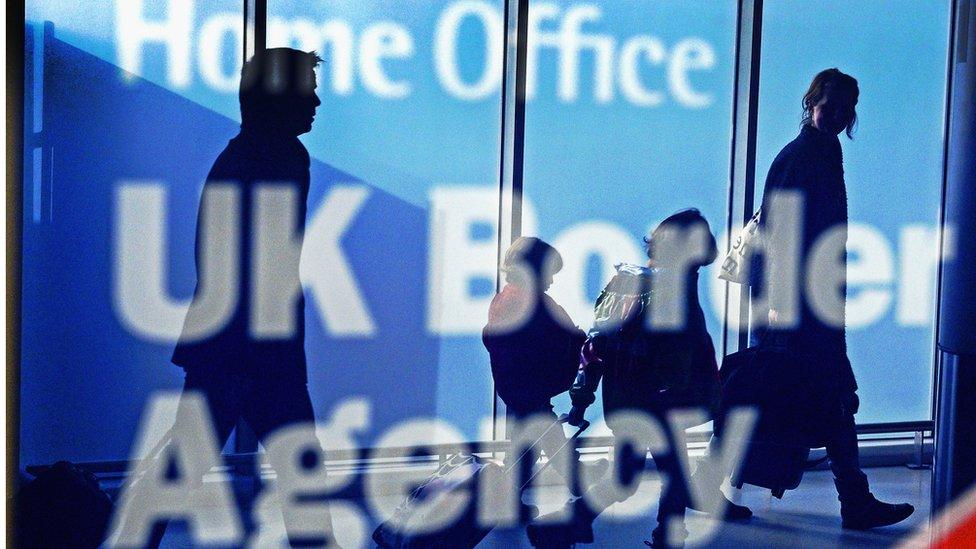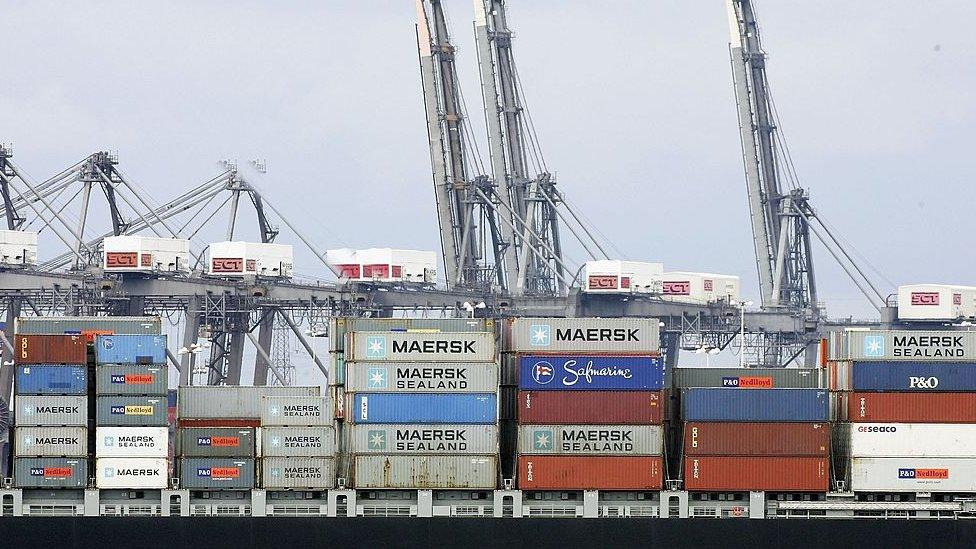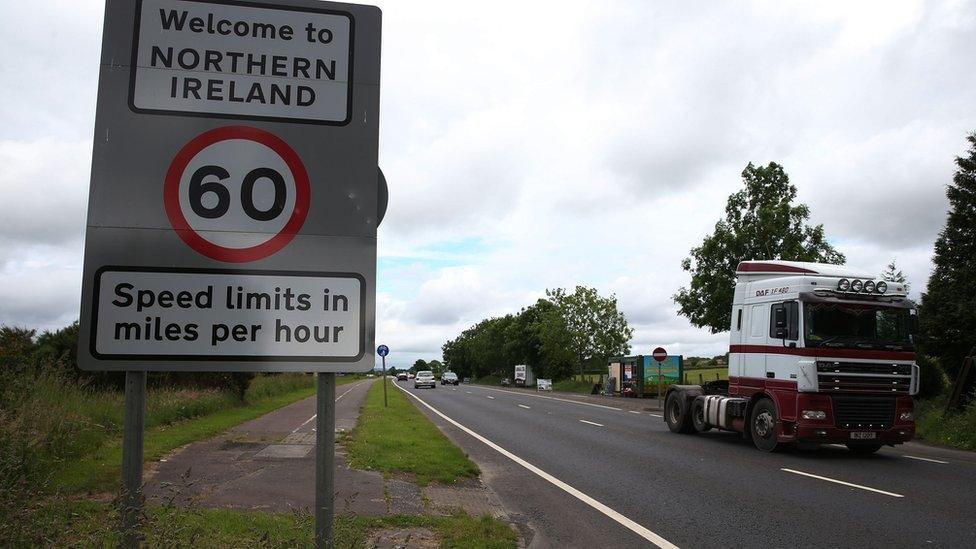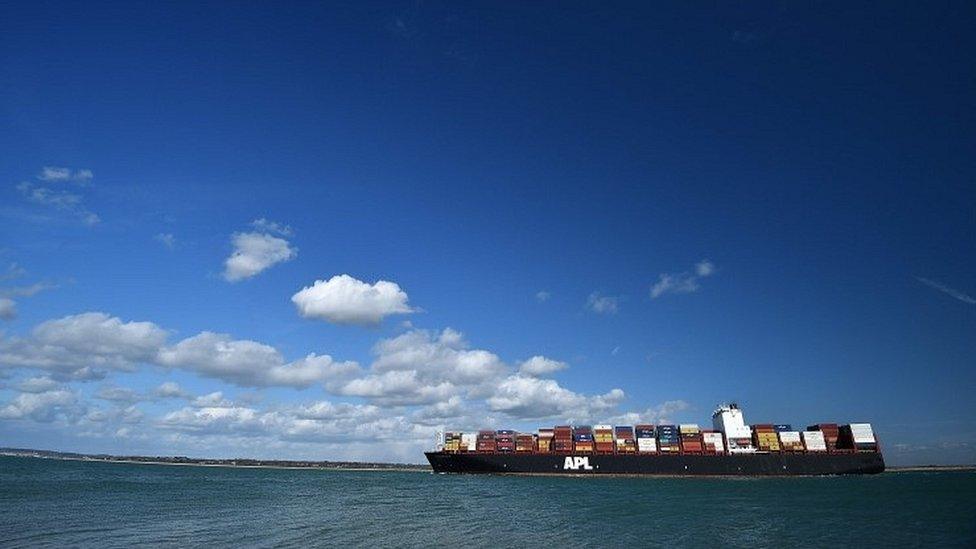Brexit: UK will struggle to change UK borders in time, says watchdog
- Published

The government will struggle to deliver the "huge changes" required to the UK's borders in time for Brexit, Meg Hillier, the chairwoman of the Commons public accounts committee said.
The Labour MP was responding to a report by the National Audit Office, external, the UK's spending watchdog.
The report warned of a significant increase in workload for border forces following Brexit.
The government said it would ensure border forces had adequate resources.
The border workforce has reduced by 4% over the past four years.
The NAO report warns that the land border between the UK and Ireland may require "special arrangements" and any changes would need "significant lead times" to be successfully implemented.
'Uncertainty'
The report estimated if existing checks for non-EEA nationals - people who don't live in the EU, Iceland, Liechtenstein or Norway - were extended to EEA arrivals, UK Visas and Immigration would need to make 230% more decisions a year.
The UK's tax authorities have estimated that if customs declarations are required for trade between the UK and the EU, they could increase by around 360%.
The government said its new Customs Declaration Service would be able to handle significant increases in volume following Brexit and was on track to be delivered by January 2019.
There will also be an additional 300 frontline Border Force officers to deliver training to the existing workforce ahead of Brexit.
The precise details of the arrangements for UK borders post-Brexit are not yet known but as the government has committed to leaving the single market and the customs union the NAO report predicted Brexit would result in significant changes to border controls.
However, the "uncertainty" surrounding the nature of the UK's exit from the EU made "detailed planning and management inherently difficult", the report added.
Meg Hillier said: "The government can't even get started on many of these challenges until we have progress on the exit deal.
"Add to that the Home Office's poor track record with projects like e-borders and for all the government bluster about Brexit it's difficult to see how, practically, it will be able to deliver any of these huge changes in time."
Labour MP Chris Bryant, a member of pro-EU group Open Britain, said the NAO report "points to a nightmare scenario of lorries backed up for miles at Dover, disruption of our food supply, and a massive increase in costs to British businesses which trade abroad".
Ed Davey, Liberal Democrat home affairs spokesperson, said the Conservatives were not taking the issue of border controls after Brexit "seriously".
A government spokesman said: "We are fully focused on making the UK's exit from the EU, and our new trading relationship with the world, a success.
"We have set out proposals for an ambitious future trade and customs relationship with the EU and we will be setting out proposals for the future immigration system in due course.
"We will of course ensure we have the resources we need to continue to run an effective customs, borders and immigration system in the future."
- Published15 September 2017

- Published7 September 2017

- Published15 August 2017
